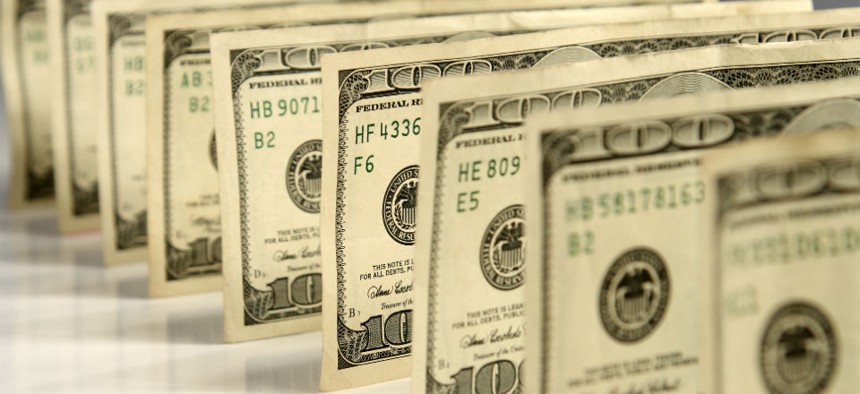
Steven T Howes/Shutterstock.com
Shutdown Deal Allows 1 Percent Pay Raise in 2014
Congress, which agreed to freeze its own pay, can still block the increase.
The compromise bill President Obama signed early Thursday morning to reopen government and suspend the debt ceiling said nothing about pay raises for federal employees. And for federal workers who have not seen a raise in three years, the silence said everything.
Without congressional intervention, Obama’s plan to give an across-the-board 1 percent raise to all federal employees will go into effect Jan. 1. Typically, Congress would cancel this plan in an appropriations bill or continuing resolution, though it could still block the scheduled raise in another piece of legislation before the end of the year.
The current continuing resolution muddies the path for Congress to block the pay raise, as it funds government through Jan. 15, two weeks past the date the pay raise would go into effect.
Obama officially submitted his alternative federal pay plan in August, matching the 1 percent raise in pay rates to military service members. The increase would only apply to the basic rate of pay, as locality pay levels would remain at their 2013 levels.
“Civilian federal employees have already made significant sacrifices as a result of a three-year pay freeze,” Obama wrote in a letter to Congress. “As our country continues to recover from serious economic conditions affecting the general welfare, however, we must maintain efforts to keep our nation on a sustainable fiscal course.”
The Senate delegation from Maryland praised the planned pay increase and anticipated it will go into effect. The raise, coupled with the promise of back pay for employees who were furloughed throughout the shutdown, provided a rare glimpse of good news for the federal workforce, the Democratic senators said.
"The government shutdown was a real punch in the gut to federal workers who were already reeling from multi-year pay freezes, sequestration cuts and furloughs, as well as threats to health and retirement benefits,” Sen. Ben Cardin said. “These hardworking public servants did not cause our economic crisis, but they paid a heavy price.”
Sen. Barbara Mikulski said the raise could help ease the pain the shutdown inflicted.
“I'm proud to have fought on the front lines for federal employee pay as hard as federal employees fight on the front lines each and every day for America," Mikulski said. "The promises of a modest pay raise and back pay for furloughed government employees are good first steps in recognizing the value of federal workers. They have been the targets of unending attacks.”
Mikulski and Cardin both promised to continue to fight for federal employees and to ensure they are no longer used as “pawns” and “scapegoats” in future budget battles.
Lawmakers themselves, however, agreed to continue an ongoing freeze of their own pay. This marks the sixth consecutive year Congress has denied itself a cost-of-living adjustment that was automatically slated to kick in. Rank-and-file members of Congress make $174,000 a year.
NEXT STORY: More Uncertainty Awaits Feds After the Shutdown







